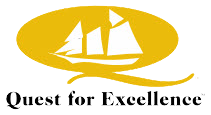
COURSE CREDITS & HOURS
COURSE FEES
PROGRAM PURPOSE
Pre-Sail Webinar, Wenesday, July 18, 2018, 1-3 pm Pacific DST
Creating a Culture of Caring for the LGBT Community
This program is designed to acquaint administrators with the newly implemented education and training program designed to address the needs of the under-served Lesbian, Gay, Bisexual and Transgender (LGBT) community.Driven into hiding from generations of persecution, new legal protections have emboldened many members of the community to embrace their diversity, and more opening contribute to society. However, as with many matters that some people consider private, not all people wish to openly express what the LGBT culture can offer. Some people may not even be aware of their sexual orientation. COK : Cultural Competency and the LGBT Community.
You will learn how to:
- Discuss terms related to gender role and sexual orientation.
- Describe the evolution of civil rights in the United States.
- Discuss why LGBT people are less likely to access health and social services.
- Discuss methods to promote sensitivity and respect for cultural diversity in the community care setting
At Sea, July 22, 2018
The Dynamics of Deception 10 AM - Noon
In our work, we often encounter deception by our employees and our patients, residents or clients. This seminar will discuss why and how people deceive others and ways we can detect deception. COK: Management/Supervision of Staff.
You will learn how to:
- Differentiate between conscious and unconscious deception
- Identify motivations for deception
- Describe deception by people in different age groups
- Describe the interplay between the sender and the receiver of a deceptive message, and
- Identify ways in which we may be able to detect deception.
Communication: Effective Performance Evaluations to Provide Better Service 1-3 PM
Community Care Administrators depend on staff to provide the services that clients need. Employees need to know what is expected of them and how well they are meeting those expectations. Effective performance evaluation depends on good communication tools. This course provides administrators with practical tools to evaluate employee performance. COK: Management/Supervision of Staff Performance Evaluations.
You will learn how to:
- Recognize the importance of the position description to communicate performance expectations
- Recognize the importance of praise as a management tool
- Discuss methods to develop effective performance goals
- Identify an effective tool for disarming conflict
- Identify an effective tool for dealing with difficult conversations, and
- Recognize rules for fair fighting.
Positive Approach to Dementia Care: The Work of Teepa Snow (ARF, RCFE Breakout) 3 - 5 PM
This course is designed to provide you with an overview of the work of Teepa Snow, an Occupational Therapist who revolutionized methods of interacting with person who are suffering from dementia syndrome. We will include information about defining stages of dementia, including how to approach people who have dementia according to their needs. We will discuss how to approach someone who is distressed. We will conclude with advice on how to be a successful care partner to someone who has dementia syndrome. COK: Alzheimer's/Dementia Training (RCFE), Psycho-social needs (ARF).
As a result of this program, you will be able to:
- List the six Gem Levels described by Teepa Snow
- Explain two goals for using the Gem Level system
- Demonstrate the Hand-Under-Hand technique and
- Describe the Positive Physical Approach technique.
Group Home Best Practices in Nonprofit Corporation Management (GH Breakout) 3 - 5 PM
As residential care licensees are increasingly converting their form of doing business into corporations, there is a marked need for information on appropriate and legal roles in this new "ownership" model. Group Homes are expressly required to incorporate as nonprofit entities in order to receive funding for care under California Welfare and Institutions Code section 11400(h). Failure of Board Members, Board Officers, and paid Executive Officer staff to abide by these legal roles can and does put organizations in legal peril. Additionally, failure of nonprofit corporations to keep up with annual filing requirements can result in having their tax- exempt status revoked, and their corporation placed in a suspended status. This seminar provides administrators with the tools and techniques to effectively and efficiently manage their operations without jeopardizing their limited liability status, or compromising appropriate lines of communication. Whether you are a corporate "owner" or an executive director, this presentation is a "must hear!" COK: Management and Supervision of Staff.
You will learn now to:
- Discuss the roles and responsibilities of corporate officers and directors.
- Describe Best-practice boundaries pertaining to lines of communication between staff and corporate officers and directors.
- Describe Best practices in conducting and documenting corporate meetings.
At Sea , July 25, 2018
How to Organize and Target Your Marketing Efforts for Better Results 9 AM - 12 Noon
Community Care Administrators need to understand how to reach potential residents and their families. The decision to select a new kind of living style for oneself or for a loved one is usually difficult. The concepts of "buying" and "selling" are different than they are in retail operations. COK: Business Operations: Marketing a Facility.
You will learn how to:
- Define "selling" and "buying" as the terms apply to the residential care world
- Recognize common barriers to marketing residential care businesses, and
- Create a statement of value.
Staff Education and Training Techniques Workshop 1 - 5 PM
Of all of the most terrifying experiences that people admit to, public speaking generally ranks #1, even above the fear of dying. Fear is usually caused by either lack of experience or, even worse, a horrible experience. Teaching and conducting training classes are close cousins to public speaking, even when it comes to training our own staff or the family members of our residents. Like all other skills, teaching is a learned skill; people aren't born with it. However, training staff members is one of the many required roles of residential care administrators. Title 22 Regulations require that Administrators have the responsibility to train their staff . However, initial certification programs do little more that mention this requirement in passing. This program was designed to fulfill that gap. Additionally, some administrators may wish to conduct certified continuing education programs as vendors themselves. This course provides an excellent foundation in adult learning theory essential to succeed as an educator or trainer. Specifically, this seminar is designed to introduce community care administrators and professionals to the principles of adult learning and provide them with the information and skills necessary to conduct education and training classes for qualified staff. COK: Supervision & Management of Staff.
You will learn how to:
- describe the principles of adult learning.
- identify teaching methodologies and appropriate educational situations for each of these methodologies.
- identify essential presenter skills.
- demonstrate the appropriate use of popular audiovisual training aids.
- demonstrate the development of an education or training objective and outline.
- demonstrate an effective presentation of an education or training class.
At Sea, July 27, 2018
Personal Rights Advocacy through the Ethical Decision-Making Process 10 AM - Noon
In this era of increasing ambiguity regarding promises and expectations, we are daily confronted by new perspectives on "What is the truth." Add to that the complexities involved in providing care to a child, a dependent adult, or an elderly senior person, and the increasingly grey shades of "the truth" become exponentially more complex as they are multiplied against "What is the best thing to do?" Hence the evolution of bioethics. Finally, we are providing care to an increasingly diverse and complex population, people from ethnicities, cultures, sexual orientations, and religious preferences that may not be our own. This may give rise to an internal conflict between our personal beliefs and our professional duty. There are, however, well established guidelines to support us on respecting "personhood," ensuring that the ends do justify the means, and aspiring toward beneficence over non-maleficence. COK: Residents Rights (RCFE), Admission & Assessment Retention Nondiscrimination, Client's Rights (GH),, Psychosocial Needs Client's Rights (ARF).
You will learn now to:
- Describe ethical considerations in terms of advocating for resident/client rights.
- Identify guidelines in approaching ethical decision making.
- Demonstrate the use of a bioethical approach to a given case scenario.
Alterations in Bladder and Bowel Elimination: Restricted Health Conditions (Breakout ARF,RCFE) 1 - 3 PM
This course benefits residential care administrators by providing them information about Bladder and Bowel Incontinence as a Restricted Health Condition. We will discuss types of incontinence, causes of incontinence, how to evaluate residents, and treatment options. We will review Title 22 Regulations specific to these restricted health conditions, emphasizing the role of collaborating with appropriately skilled professionals for residents who are unable to adequately care for their own incidental needs. This Course is specifically designed to address the Core of Knowledge section on Admission & Assessment Retention: Restricted Health Conditions.
You will learn how to:
- Identify managed incontinence as a restricted condition
- Recognize two types of bowel incontinence
- Recognize at least two types of bladder incontinence, and
- Describe ways to protect the skin of the incontinent resident.
Restricted Health Conditions and Postural Support Devices (GH Breakout) 1 - 3 PM
Over the years, the level of acuity has increased in all levels of the health care continuum. Health care conditions that may have required critical care or hospital care are routinely provided in skilled nursing facilities. Similarly, health care conditions that were previously prohibited in residential care are now restricted or allowable. Additionally, some incidental medical conditions that required exceptions or waivers no longer required advanced authorization by the Community Care Licensing Division. This program provides an update on Prohibited, Restricted, and Allowable Conditions, including precautions when caring for residents with postural support devices. COK: Admission & Assessment Retention Non-Discrimination: Allowable vs. Prohibited Conditions.
You will learn now to:
- Differentiate between Restricted and Prohibited Health Conditions
- Discuss the use of Postural Support Devices
- Describe guidelines for providing care to a resident with Restricted Health Conditions.
Sexuality and Relationship Issues in the Residential Care 3 - 5 PM
This session is designed to assist residential care administrators and service providers in exploring social and personal values, attitudes, legal rights, policy and house rules, regarding human sexuality, relationships and expression. The session will assist service providers in methods of supporting the legal right of adult residents, and providing behavioral guidelines for minors in the residential care setting. This session will review and provide an overview of specific California law and licensing regulations used in supporting residents' rights to privacy, sexual orientation, and expression including lesbian, gay, bisexual, and transgender issues and expression. Guidelines will also be discussed to aid in the development of "House Rules" stressing the importance of access to information and counseling regarding personal protection and safer sex. COK: Physical Needs - sexuality.
You will learn how to:
- Describe law and regulations protecting the rights of residents to privacy, sexual orientation, and sexual expression
- Identify ways in which care providers can support individuals without sacrifice of their own values
- Demonstrate how to develop residential policies and "house rules" which support individual rights and maintain the integrity of personal values
- Identify local resources available to administrators and residents for appropriate education and counseling regarding personal protection and safer sexual expression.
- CCL Course Approval #: 124 0304-28143 (RCFE), 124 0304-28142 (ARF), 124 0301-28141 (GH)
Quest for Excellence is a nonprofit 501(c)(3) corporation providing educational services and products since 1994. This conference is Provider approved for up to 21 Contact Hours of professional continuing education by Quest for Excellence - POB 9050, Eureka, CA 95502 . California licensed health care professionals including: RN, LVN, Physical Therapists, Pharmacists, Nursing Home and Residential Care/Assisted Living Administrators (NHA, RCFE, ARF, GH). BRN Provider Number CEP11897, CCL Vendor #2000124 NHAP Provider Number 1634, PT Accreditation Agency, Provider approval #QFE0001. We reserve the right to replace scheduled speakers at our sole discretion.. COK: Core of Knowledge.


































